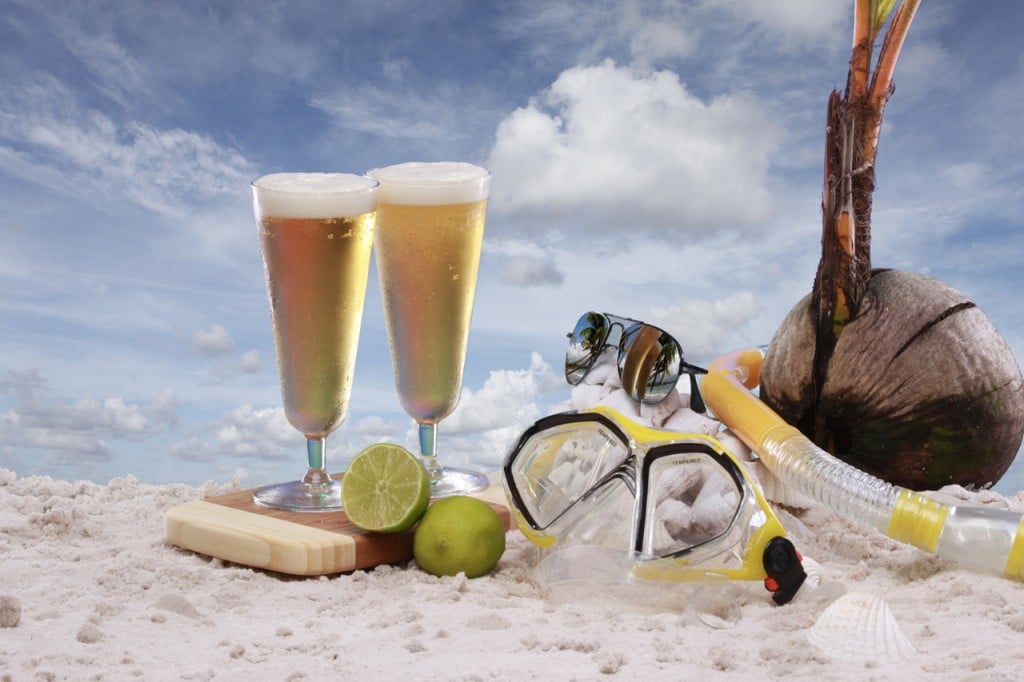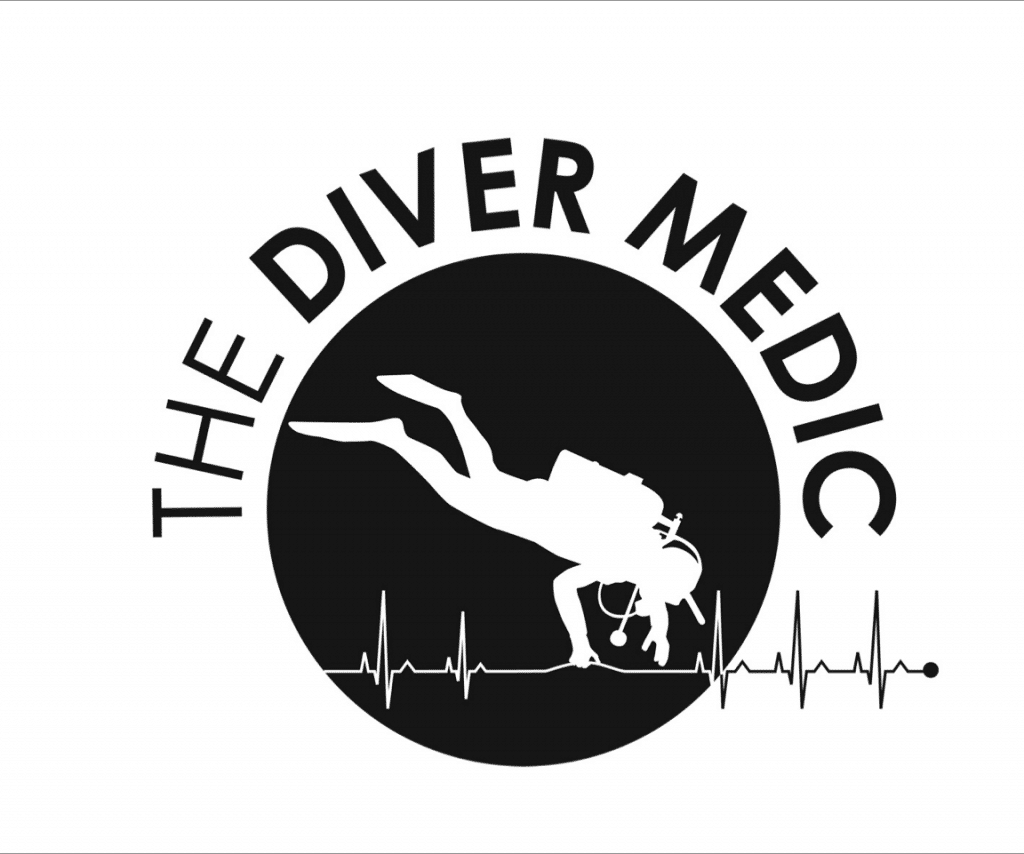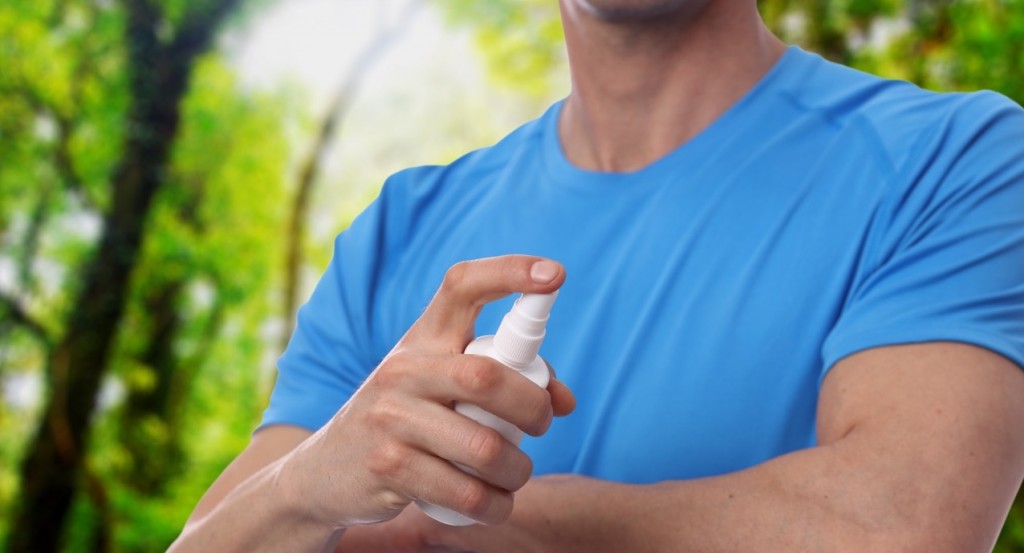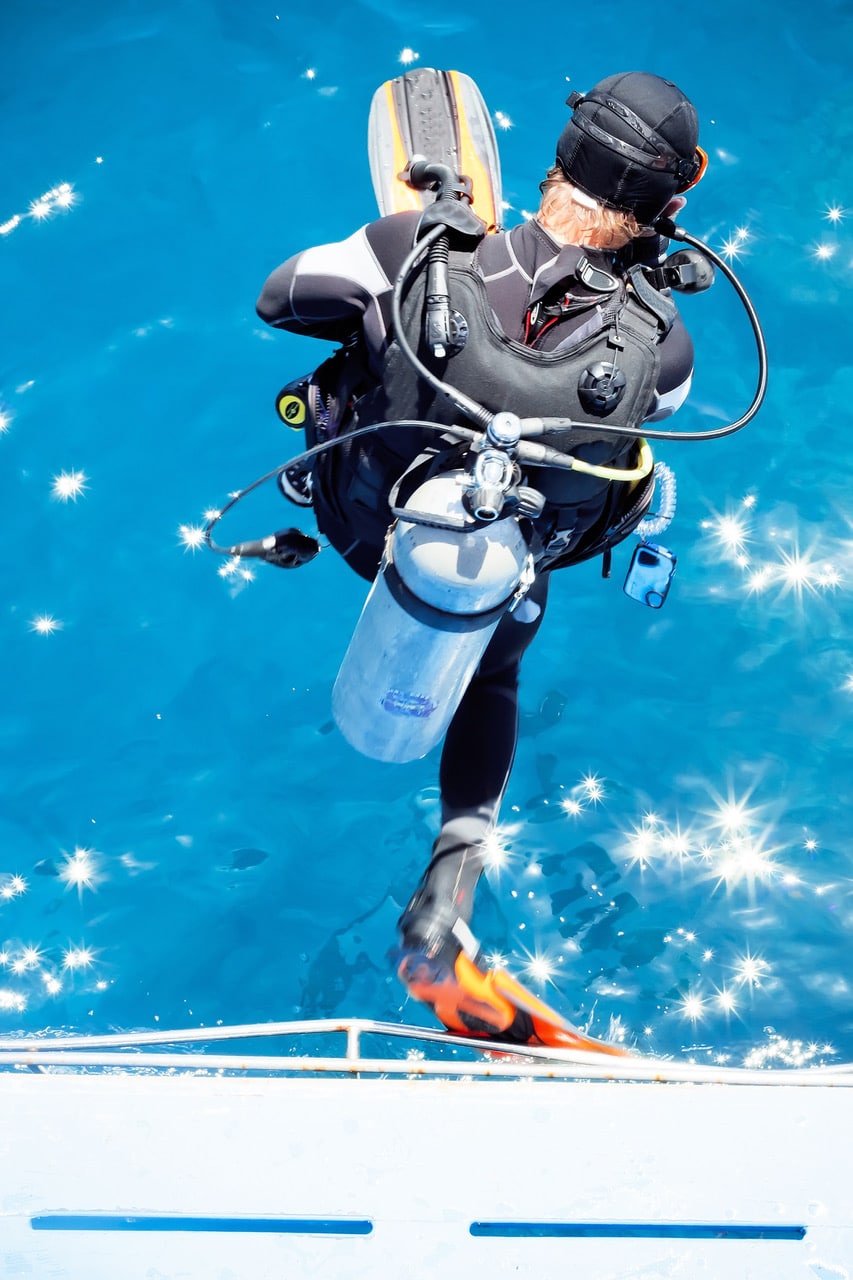News
I’m on my way to get some sun…

 We are excited to welcome The Diver Medic’s Chantelle Newman to Scubaverse. Chantelle will be writing about health and medical matters for Scubaverse readers… in her first post, some important travel advice!
We are excited to welcome The Diver Medic’s Chantelle Newman to Scubaverse. Chantelle will be writing about health and medical matters for Scubaverse readers… in her first post, some important travel advice!
Are you thinking of travelling soon? Are you prepared? Do you have your travel arrangements? Do you know what vaccinations you need? Will you require anti-malarial prophylactic medications, for example, especially in tropical, sub-tropical regions of the World? Perhaps certain antibiotics, which will protect you and treat traveller’s diarrhoea, also known as ‘Montezuma’s Revenge’ when travelling to Mexico and Central America.
Eating & Drinking
Water and food-borne illnesses are particularly burdensome to divers and water sports enthusiasts, and these are often preventable, with just a few simple precautions – such as anything consumed orally. Start by ensuring that hot foods are hot and consumed as soon as possible after cooking. Cold foods should be cold and consumed right after removal from proper refrigeration, especially in the tropics.
Remember that ice cubes may be frozen using contaminated water, in regions of the World lacking chlorination. These present the risk of melting into your frozen cocktail, at the Tiki bar on the beach, thereby releasing germs into your exotic libation when the ice cubes melt.

Even though your drink and container may have been handled in a perfectly exemplary sanitary manner by your waiter, remember always to use a straw, which you have un-wrapped yourself, for sipping those drinks. It’s also advisable to avoid contact with the edge of any glass directly with your lips and mouth in order to prevent hepatitis and notwithstanding when everything else goes well, NEVER DRINK (Alcohol) & DIVE!
Food ought to be served in covered dishes, to prevent access to insects and other bugs and / or parasites. It is safer and more advisable to use sealed and sanitized eating utensils, which you have opened yourself. After your personal use, recycle, thus presenting a perfect teachable moment in countries which do not re-cycle plastic. Share the valuable information of not discarding rubbish, especially non-biodegradable plastics into the Oceans and waterways, consequently helping to save our fragile and precious seas.
Common Sense Guidelines
Avoid walking barefoot on the beach or along the margins of dense vegetation near the beach. The possibility of direct contact of the soles of your feet with the urinary and fecal remnants of rodents and other exotic vermin can produce conditions such as Leptospirosis, Cutaneous Larva migrans; whilst a large variety of terrestrial and marine organisms may lead to a broad variety of skin rashes, both pigmented and raised, accompanied by swollen lymph glands, fever, and sometimes even more serious generalized medical syndromes and illnesses.
Even so, do not let all of this dissuade you from enjoying your holiday! As long as you follow some basic precautions and common sense guidelines, you have every prospect of experiencing a fabulous vacation and dive trip to a safe region of the Globe, with access to knowledgeable medical personnel.
Just think…it is possible to contract a grave and intractable medical condition from staying home and simply working improperly on your Aquarium with un-gloved hands. Fish-Handler’s Granuloma – caused by a serious germ – Mycobacterium Marinum, may take weeks or months to manifest itself and requires months of medical and surgical care presuming it is properly recognized, evaluated, and dealt with…
Travelling can be exciting but also stressful for some of us, even before we get to go on holiday. Going to another country may be very daunting. Have you packed everything you need? Here is a little help!
What to pack?
Sunscreen – attempt to purchase sunscreen that is labelled “broad spectrum” as this means it protects you against both UVB and UVA rays. Ensure you get sunscreen with a sun protector factor (SPF) of at least 20.

Insect Repellent – research has shown that products that contain the chemical DEET (N, N- Diethyl-meta-toluamide) are the most effective insect repellents against mosquitoes, ticks, fleas, harvest mites and many other bugs if used correctly. DEET products can be applied onto clothing and skin and are available in sprays, sticks, roll-ons and creams. 100% DEET when applied can be effective up to 12 hours. When using DEET on your skin for the first time, try to use a very small amount, around the size of the tip of your little finger and leave for 5 to 15 minutes. If you develop redness, blisters or itching, then seek medical advice on what other products you can use as you may have a DEET allergy.
Anti-Diarrhoea pills – Traveller’s diarrhoea is the most common illness affecting travellers. Diarrhoea is when there are three or more unformed stools in 24 hours passed by a traveller, accompanied by nausea, bloating and abdominal cramps. Traveller’s diarrhoea is more common in the developing world, where rates exceed 60% compared to advanced countries. A drug used to relieve the symptom is loperamide but it should not be overused. In most countries, it is available generically and under brand names such as Lopex, Dimor, Fortasec, Lopedium, Gastro-Stop, Pepto Diarrhoea Control, Imodium and Lomotil.
Ensure you read the label of any drug before use. Do not take anti-diarrhoea drugs if there is blood in your stools, or if you have a high temperature (check with your pharmacist). Do not give anti-diarrhoea drugs to your child, seek medical advice first. Anti-spasmodics, which are used to treat abdominal cramps ought to be avoided as well as pharmaceuticals such as Motilium – these have recently been removed from the market in many but perhaps not ALL countries and therefore, you are well advised to seek qualified medical assistance, evaluation and treatment.
Rehydration sachets – most travel clinics advise travellers to carry rehydration sachets when travelling in developing countries. As safeguarding, it will not harm you to add some sachets in with your travel kit. Rehydration sachets contain rehydration salts consisting of sugars and salts (anhydrous glucose, sodium chloride, potassium chloride and sodium bicarbonate). They are used to replace body fluids lost as a result of acute diarrhoea.
Anti-malarial drugs – Anti-malaria medications, also known as antimalarials, are designed to prevent or cure malaria. Mosquitoes may cause an inconvenience because of local reactions to the bites themselves and from the infections they transmit. Mosquitoes spread malaria, yellow fever, dengue and Japanese encephalitis. Remember Garlic, Vitamin B and ultrasound devices do not prevent bites. Recommendations for drugs to prevent malaria differ by country of travel and can be found in the country-specific tables of the Yellow Book.
Recommended drugs for each country are listed in alphabetical order and have comparable efficacy in that country. See this link for more information on the country you may be travelling too: www.cdc.gov/malaria/travelers/country_table/a.html
Antihistamines – Antihistamines are mainly used to treat hay fever (seasonal allergic rhinitis), hives (urticaria), itching (pruritus) and insect bites and stings. They may be used to help reduce feeling sick (nausea) and vomiting. Antihistamines are available as tablets (oral antihistamines), creams (topical antihistamines) and nasal sprays. They work by blocking the effects of a protein called histamine. Many antihistamines are available over the counter at a pharmacy, although some require a prescription. Here are some brands of antihistamines: Atarax, Benadryl, Clarinex, Dramamine, Optimine, Quenalin, Zyrtec, Cinnarizine and Piriton. Some antihistamines cause drowsiness, and once again, excessive alcohol use ought to be avoided.

Diabetics should arrange for an adequate supply of materials and equipment, for blood sugar testing because travellers are likely to experience inordinate delays in obtaining authorized access to such supplies in most countries and ought to bring their own lancets, test strips, Glucometers etc.
Contracting Airborne diseases can be minimized by use of tight N-95 masks, which are the recommended barrier method, particularly on long international flights with prolonged exposure to re-circulated air in the aircraft cabin, which places air travellers at risks for inhalation of particulate droplet spread of viruses and other organisms.
Pain relief medication – Pain is a signal from our body that something is not right. It can be due to a physical injury or some kind of illness. Most types of physical pain can be treated with pain relievers. Over-the-counter medications are good for many types of pain. Analgesics (pain relief) such as acetaminophen (Tylenol) or paracetamol are used to treat mild or moderate pain and can also be used to reduce temperature in fevers. Commonly prescribed medication such as codeine can be used alone or in combination with other analgesics for stronger pain, such as dental pain, menstrual pain or migraines. Non-steroidal anti-inflammatory drugs (including aspirin) are used to reduce pain associated with inflammation, such as sports injuries, and can also be used to relieve fever. Always seek medical advice before taking any off the shelf medication. What a lot of people do not realise is that their prescribed medication may not be suitably compatible when being used with certain over the counter medication and may cause serious health issues.
First-Aid Kit – The Lifesystems World Traveller Kit is a very comprehensive first-aid kit and has the following items included in the kit: Primary Care Leaflet, Fabric Plasters, Woven Bandage, Crepe Bandage, Triangular Bandage, Gauze Swabs, Paracetamol, Loperamide, Ibuprofen, Low Adherent Dressing, Medium Dressing, Eye pad Dressing, Fabric Dressing Strip, Wound Closure Strips, Zinc Oxide Tape, Micropore Tape, Duct Tape, Scalpel, Hypodermic Needles & Syringes, Forehead Thermometer, Antiseptic Wipes, Scissors, Tweezers, Safety Pins, Powder Free Vinyl Gloves. The Lifesystems Traveller Kit is the basic kit without the Needles and Syringes. However, going to your local supermarket or pharmacy you can make your own kit up with the list provided. Check out some first-aid kits and travel product available by going to www.lifesystems.co.uk and for the US and Canada www.adventuremedicalkits.com.
You might want to add products for marine life injuries such as 5% Acetic acid (Vinegar is roughly 4%-8% acetic acid by volume) for Jelly fish stings. Unfortunately, in the real world treating a jellyfish sting by urinating on it may, in fact, cause someone even more pain, rather than relief. Urine can, in reality, aggravate the jellyfish’s stingers into releasing more venom. Another item that may help is a heat pack. In the event you don’t have hot water on hand using a heat pack stored in your first-aid kit will help relieve some pain from a Stingray or Stonefish injury. Ultimately water heated up to a temperature of 40 to 50C but limiting the contact to prevent scalding burns, is the best treatment for Sea urchins, Devil, Scorpion, Stone fish and Stingrays.
Certain marine venoms and toxins, may be treated with anti-venoms, which may not be available everywhere. Australia and the Great Barrier Reef coastal regions have some of the best and most experienced and skilled emergency rescue personnel as well as doctors, nurses and medics, who implement standardised protocols for rapid triage, evacuation and possible expedient treatment including hyperbaric oxygen therapy for Scuba Divers suffering from a variety of medical conditions associated with diving.
Travel Insurance – this is the most important product when travelling, never leave home without it! What travel insurance does, of course, is to prevent you from financial disaster if something actually does go wrong. There might be rare cases where someone without insurance gets air-lifted out at sea, but without insurance your costs for possible repatriation may cause you to have to re-mortgage your house… but honestly, your chances of being killed by a falling coconut are probably greater in the long run.
Travel safe always!
Find out more at www.thedivermedic.com.
Gear News
Introducing the TR-80, IR-50 and CS-30 Regulators from DYNAMICNORD

Whether you are a beginner or a professional diver – with the three new main regulators from DYNAMICNORD, everyone will find their favourite regulator. They all look super stylish.
Excellent performance with the TR-80
Quality and performance are the be-all and end-all for regulators. It is not for nothing that the TR stands for Tec Reg. The innovative design of the TR-80 guarantees absolute reliability – even in ice-cold waters.

Perfect breathing effort at 0.8 J/l / certified for diving in waters below 10 degrees / structural design made of solid brass for best cold protection / membrane-compensated design with dry seal of the first stage / reduced exhalation effort thanks to optimized exhalation membrane and bubble deflector / adjustable Venturi (dive/predive) and adjustment knob for individual inhalation comfort / innovative design of the front cover prevents free-flow in strong currents or when diving with scooters / design made of sandblasted brass, matt chrome finish / 2 HP and 4 LP outlets / mouthpiece made of high-quality, anti-allergic silicone for maximum comfort.


Amazing underwater adventures with the IR-50
The IR-50 is the top regulator for advanced and experienced divers. Natural breathing is the essence of this regulator.

Ideal breathing effort at 0.8 J/l /certified for diving in waters below 10 degrees / compensated membrane / adjustable venturi (dive/predive) and adjustment knob for individual inhalation comfort/ outlet valve and deflector for minimum exhalation effort and reduction of bubbles on the face / design made of sandblasted brass, matt chrome finish / 2 HP and 4 NP outlets / mouthpiece made of high-quality, anti-allergic silicone for maximum comfort.


The Workhorse – our CS-30
For diving centres and diving beginners – the workhorse stands for strong construction, reliability and robustness. Perfect for your training.

Optimal breathing effort at 0.8 J/l /recommended for diving in waters above 10 degrees / non-compensated piston / adjustable venturi (dive/predive) / outlet valve and deflector for minimum exhalation effort and reduction of bubbles on the face / design made of sandblasted brass, matt chrome finish / 1 HP and 3 NP outlets / mouthpiece made of high-quality, anti-allergic silicone for maximum comfort.


Octopus OP-30
The OP-30 is the ideal addition to all DYNAMICNORD regulators. It is identical in construction to the CS-30.

The TR-80, IR-50, CS-30 (DIN & INT) regulators and the Octopus OP-30 are available from DYNAMICNORD dealers and in the online store.
DYNAMICNORD – Your Outdoor Companion.
Marine Life & Conservation
Paul Watson Released as Denmark Blocks Japan’s Extradition Bid

Renowned anti-whaling activist Paul Watson has been released from custody in Greenland after spending five months in detention. Denmark’s Justice Ministry rejected Japan’s request for his extradition, citing insufficient guarantees that his time already served in custody would be credited against any potential sentence.
The 74-year-old Canadian-American was arrested on July 21 in Nuuk, Greenland’s capital, when his ship docked to refuel. His arrest was based on a 2012 Japanese warrant related to a 2010 encounter in Antarctic waters. Japan alleged Watson obstructed operations and caused damage to a whaling research ship during efforts to disrupt illegal whaling. Watson has consistently denied these claims, maintaining his commitment to marine conservation.
Denmark, which oversees extradition matters for Greenland, concluded that while the legal conditions for extradition were met, the lack of assurances from Japan regarding time-served credit made extradition untenable.
In a video shared by his foundation, Watson expressed gratitude and relief, saying, “After five months, it’s good to be out… and good to know they’re not sending me to Japan.” He added that the most difficult part of his time in custody was being separated from his two young sons.
Watson is a pioneering figure in marine conservation, known for founding the Captain Paul Watson Foundation in 2022 after decades of activism with the Sea Shepherd Conservation Society. His bold efforts to defend marine life have earned him widespread support, including from celebrities and conservationists. His work has also been featured in the acclaimed reality TV series Whale Wars.
Watson’s lawyer, Jonas Christoffersen, praised the decision, stating, “We are happy and relieved that Paul Watson is now free.” He added that Watson is eager to reunite with his family and continue his vital work.
The arrest occurred while Watson’s vessel, the M/Y John Paul DeJoria, was en route to the North Pacific with a team of 26 volunteers to intercept a Japanese whaling ship. His foundation described the arrest as politically motivated and emphasized that Watson’s actions were focused on ending illegal whaling practices.
Japan resumed commercial whaling in 2019 after leaving the International Whaling Commission, asserting that whale meat is a cultural tradition. Conservationists, however, continue to challenge these practices, highlighting their impact on marine ecosystems.
Despite the challenges, Watson remains steadfast in his mission to protect marine life and bring attention to whaling practices. His dedication to ocean conservation has made him a globally respected advocate for the environment.
-

 News2 months ago
News2 months agoIconic SS United States to become the World’s Largest Artificial Reef
-

 News3 months ago
News3 months agoBook Review – 52 Assignments: Underwater Photography
-

 Gear News3 months ago
Gear News3 months agoDYNAMICNORD – New German diving brand enters the British market
-

 News3 months ago
News3 months agoExploring Cenote El Pit: A Diver’s Dream
-

 Gear News3 months ago
Gear News3 months agoTry BARE drysuits (and maybe even win one!) this Friday with Sea & Sea at North West Dive Fest
-

 Marine Life & Conservation3 months ago
Marine Life & Conservation3 months agoBook Review: Coral Triangle Cameos
-

 Blogs2 months ago
Blogs2 months agoDive the Egyptian Red Sea this Autumn with Regaldive
-

 News3 months ago
News3 months ago2024 Ocean Art Underwater Photo Competition Announced















